Recombinant Mouse Angiopoietin-2 (Angpt2), partial
-
货号:CSB-RP169594m
-
规格:¥1836
-
图片:
-
其他:
产品详情
-
纯度:Greater than 90% as determined by SDS-PAGE.
-
基因名:
-
Uniprot No.:
-
别名:Angpt2; Agpt2Angiopoietin-2; ANG-2
-
种属:Mus musculus (Mouse)
-
蛋白长度:Partial
-
来源:E.coli
-
分子量:57.0kDa
-
表达区域:19-483aa
-
氨基酸序列YSNFRKSVDSTGRRQYQVQNGPCSYTFLLPETDSCRSSSSPYMSNAVQRDAPLDYDDSVQRLQVLENILENNTQWLMKLENYIQDNMKKEMVEIQQNVVQNQTAVMIEIGTSLLNQTAAQTRKLTDVEAQVLNQTTRLELQLLQHSISTNKLEKQILDQTSEINKLQNKNSFLEQKVLDMEGKHSEQLQSMKEQKDELQVLVSKQSSVIDELEKKLVTATVNNSLLQKQQHDLMETVNSLLTMMSSPNSKSSVAIRKEEQTTFRDCAEIFKSGLTTSGIYTLTFPNSTEEIKAYCDMDVGGGGWTVIQHREDGSVDFQRTWKEYKEGFGSPLGEYWLGNEFVSQLTGQHRYVLKIQLKDWEGNEAHSLYDHFYLAGEESNYRIHLTGLTGTAGKISSISQPGSDFSTKDSDNDKCICKCSQMLSGGWWFDACGPSNLNGQYYPQKQNTNKFNGIKWYYWKGSGYS
Note: The complete sequence including tag sequence, target protein sequence and linker sequence could be provided upon request. -
蛋白标签:N-terminal 6xHis-tagged
-
产品提供形式:Liquid or Lyophilized powder
Note: We will preferentially ship the format that we have in stock, however, if you have any special requirement for the format, please remark your requirement when placing the order, we will prepare according to your demand. -
缓冲液:Tris-based buffer,50% glycerol
-
储存条件:Store at -20°C/-80°C upon receipt, aliquoting is necessary for mutiple use. Avoid repeated freeze-thaw cycles.
-
保质期:The shelf life is related to many factors, storage state, buffer ingredients, storage temperature and the stability of the protein itself.
Generally, the shelf life of liquid form is 6 months at -20°C/-80°C. The shelf life of lyophilized form is 12 months at -20°C/-80°C. -
货期:Basically, we can dispatch the products out in 1-3 working days after receiving your orders. Delivery time may differ from different purchasing way or location, please kindly consult your local distributors for specific delivery time.Note: All of our proteins are default shipped with normal blue ice packs, if you request to ship with dry ice, please communicate with us in advance and extra fees will be charged.
-
注意事项:Repeated freezing and thawing is not recommended. Store working aliquots at 4°C for up to one week.
-
Datasheet & COA:Please contact us to get it.
相关产品
靶点详情
-
功能:Binds to TEK/TIE2, competing for the ANGPT1 binding site, and modulating ANGPT1 signaling. Can induce tyrosine phosphorylation of TEK/TIE2 in the absence of ANGPT1. In the absence of angiogenic inducers, such as VEGF, ANGPT2-mediated loosening of cell-matrix contacts may induce endothelial cell apoptosis with consequent vascular regression. In concert with VEGF, it may facilitate endothelial cell migration and proliferation, thus serving as a permissive angiogenic signal.
-
基因功能参考文献:
- Flunarizine protected ECs from TNFalpha-induced increase in Angpt-2 transcription and vascular barrier breakdown. PMID: 28276491
- At the molecular level NLGN2 colocalizes with its neuronal partner collibystin, a CDC42 guanine nucleotide exchange factor, which is also expressed by endothelial cells and in turn modulates Angiopoietin 2 release. PMID: 29709479
- ANGPT2-TIE2 signaling is essential for mesenteric lymphatic development.VEPTP (vascular endothelial protein tyrosine phosphatase) determines TIE2 response to ANGPT2. PMID: 29358379
- Endothelial glycocalyx breakdown is mediated by Angpt-2 in a non-redundant manner. PMID: 28453727
- These results indicate that the Angpt-Tie2 system is essential for SC integrity. The impairment of this system underlies POAG-associated pathogenesis, supporting the possibility that Tie2 agonists could be a therapeutic option for glaucoma. PMID: 28920924
- ANG2 activation of Tie2 supports stable enlargement of normal nonleaky vessels, but reduction of Tie1 in inflammation leads to ANG2 antagonism of Tie2 and initiates a positive feedback loop wherein FOXO1-driven ANG2 expression promotes vascular remodeling and leakage PMID: 27548529
- A balanced expression of the Ang1/Ang2 system is important for islet physiology. Ang-2 prevents beta-cell mass and islet vascular adaptation in response to HFD feeding with no major influence on glucose homeostasis PMID: 27617438
- These results underscore a pivotal role of Kaposi's sarcoma-associated herpesvirus -induced Ang-2 in KS tumor development by promoting both angiogenesis and inflammation. PMID: 27294705
- NDPKB is a protective factor in the retina, which controls Ang2 expression and the hexosamine pathway. PMID: 25900369
- miR-150 is a novel suppressor of Ang2 generation with a key role in resolving vascular injury and reducing mortality resulting from sepsis. PMID: 26743170
- Ang-2 blockage was beneficial as it decreased fatty streak formation and plasma triglyceride levels, but had no adverse effect on pre-existing atherosclerosis in hypercholesterolemic mice. PMID: 26062989
- The results establish Ang2-mediated beta1-integrin activation as a promoter of endothelial destablization, explaining the controversial vascular functions of Ang1 and Ang2. PMID: 25635707
- Alprostadil treatment can protect renal function by reducing proteinuria. These effects are mediated, at least in part, through down-regulation of Ang-2 and IL-18 expression PMID: 25200363
- ANG2 as the first essential regulator of the functionally important interendothelial cell-cell junctions that form during lymphatic development PMID: 25030698
- This study identifies angiopoietin-2 as a link between kidney fibrosis and arterial stiffness. PMID: 24511140
- vitamin D-VDR signaling prevents lung injury by blocking the Ang-2-Tie-2-MLC kinase cascade and the renin-angiotensin system. PMID: 24196349
- Angiopoietin-2 was expressed on lymphatic vessels and macrophages in inflamed cornea. While corneal LG response was abolished in Ang-2 knockout mice. PMID: 24781940
- The Ang-1, Ang-2, Tie-2 system takes part in the pathologic processes in the brains that suffered acute carbon monoxide poisoning by participating in neovascularization. PMID: 23424209
- Anti-angiogenic miR-542-3p directly targets the key angiogenesis-promoting protein Angpt2 to prevent tumor angiogensis. PMID: 24403060
- Data report here in a definite genetic setting that Ang-2 is critical for multiple vascular permeability-inducing cytokines. PMID: 23940579
- Ang-2 is involved in initial steps of the triple-negative breast cancer brain metastasis cascade PMID: 24421076
- The data establish liver sinusoidal endothelial cells (LSECs) as a dynamic rheostat of liver regeneration, spatiotemporally orchestrating hepatocyte and LSEC proliferation through angiocrine- and autocrine-acting Ang2, respectively. PMID: 24458641
- Myocardial upregulation of angiopoietin 2 is attenuated following thrombospondin-1 disruption. PMID: 24081879
- angiopoietin-2 deficiency do not protect mice against endotoxin-induced acute kidney injury. PMID: 22872727
- a protective role of Ang2 following cerebral ischemia, an action associated with a reduced BBB permeability. PMID: 23211963
- LRP5-Tie2-Ang signaling axis plays a central role in control of both angiogenesis and alveolarization during postnatal lung development PMID: 22848540
- Ang-2 may be involved in follicular development, atresia, ovulation, and corpus luteum formation and regression. PMID: 23350236
- During liver colonization showed, colony growth and neo-angiogenesis were strongly affected by host Ang2, specifically, larger tumor volume, higher vascular density and pericyte coverage development in its absence. PMID: 22699974
- a contextual model whereby differential TIE2 and integrin expression, binding, and activation control the role of ANG-2 in angiogenesis. PMID: 22585576
- Studies indicate an important role of Ang2 in pancreatic vascular defects induced by hyperglycaemia. PMID: 22272235
- In addition to its role during setup of the brain vasculature, Ang2 is also involved in embryonic cortical neurogenesis and in the radial migration of projection neurons. PMID: 21127017
- Results indicate that blocking Ang2 inhibits metastatic dissemination in part by enhancing the integrity of endothelial cell-cell junctions. PMID: 22343031
- Ang-2 acts as a crucial regulator of inflammatory lymphangiogenesis by sensitizing the lymphatic vasculature to inflammatory stimuli, thereby directly promoting lymphangiogenesis. PMID: 22058148
- Studies suggest that the combined targeting of angiogenic ECs and proangiogenic TEMs by selective ANG2/TIE2-pathway inhibitors may extend the reach of vascular-targeting therapies in cancer patients. PMID: 21576085
- human Ang2 antibodies are potentially therapeutic agents for ocular neovascularization in models of retinal and choroidal neovascularization, in the absence of VEGF inhibition. PMID: 21851472
- Ang-2 is a novel, endothelial-derived regulator of myeloid cell infiltration that modulates beta-integrin-mediated adhesion in a paracrine manner. PMID: 21868579
- In cultured brain endothelial cells exposed to hypoxia,expression of Ang-2, MMP2 and caspase 3 were elevated. PMID: 21904637
- results showed Ang-2-transfected tumours displayed aberrant angiogenic vessels with few associated smooth muscle cells. No detectable differences in VEGF expression were observed between Ang-2-transfected and parental tumours. PMID: 21163623
- Ang-1 treatment downregulates pulmonary inflammation, VEGF and Ang-2 expression but does not protect against vascular leakage and impaired gas exchange induced by HVT-ventilation PMID: 21179479
- Ang-2 exacerbated mouse heart myocardial endothelial cells dysfunction induced by high glucose condition. PMID: 21113176
- increased expression of Tie2 and Ang2 in allergic airway epithelium and alveolar macrophages, but not Ang1 or VEGF correlates with the severity of airway remodeling PMID: 20463289
- Ang2 acting as an antagonist of Tie2 receptors and the reduction of Tie2 phosphorylation in endothelial cells rendering the vasculature more responsive to cytokines that promote both vascular remodeling and inflammation after M. pulmonis infection. PMID: 20952594
- Angiopoietin 2 mediates inflammatory hemangiogenesis, lymphangiogenesis and neutrophil infiltration in dextran sodium sulfate-induced colitis. PMID: 19902545
- Findings provide evidence that the inflammatory cytokine oncostatin M is involved in modulation of the Ang-Tie system by increasing Ang2 expression in human endothelial cells in vitro, and in murine hearts and human hearts in vivo. PMID: 20088942
- Data suggest that inhibition of Angiopoietin 2 leads to normalization of tumor blood vessels by permitting the unopposed action of Ang1, but decreases tumor vascularity primarily by blocking Ang2 actions. PMID: 19815705
- data show that tumor cell aggregates initiate vascular growth by angiogenic sprouting via the simultaneous expression of VEGFR-2 and Ang-2 by host and tumor endothelium PMID: 11901186
- Orchestrates angiogenesis and arteriovenous contribution PMID: 12048246
- Angiopoietin-2 plays an important role in retinal angiogenesis PMID: 12115724
- Ang2 signals are required for the proper development and function of the lymphatic vessels. PMID: 12361591
- Angiopoetin 2 is required for postnatal angiogenesis and lymphatic patterning. PMID: 12361603
显示更多
收起更多
-
亚细胞定位:Secreted.
-
组织特异性:Expressed only at sites of vascular remodeling.
-
数据库链接:
KEGG: mmu:11601
STRING: 10090.ENSMUSP00000033846
UniGene: Mm.439874
Most popular with customers
-
Recombinant Human Tissue factor pathway inhibitor (TFPI), partial (Active)
Express system: Mammalian cell
Species: Homo sapiens (Human)
-
Recombinant Mouse Tyrosine-protein kinase Mer (Mertk), partial (Active)
Express system: Mammalian cell
Species: Mus musculus (Mouse)
-
Recombinant Human Somatostatin receptor type 2 (SSTR2)-VLPs (Active)
Express system: Mammalian cell
Species: Homo sapiens (Human)
-
Recombinant Dog B-lymphocyte antigen CD20 (MS4A1)-VLPs (Active)
Express system: Mammalian cell
Species: Canis lupus familiaris (Dog) (Canis familiaris)
-
Recombinant Mouse Gastric inhibitory polypeptide receptor (Gipr), partial (Active)
Express system: Mammalian cell
Species: Mus musculus (Mouse)
-
Recombinant Human Oncostatin-M (OSM), partial (Active)
Express system: Mammalian cell
Species: Homo sapiens (Human)
-
Recombinant Human C-C chemokine receptor type 6(CCR6)-VLPs (Active)
Express system: Mammalian cell
Species: Homo sapiens (Human)
-
Recombinant Human Tumor necrosis factor ligand superfamily member 15(TNFSF15) (Active)
Express system: Mammalian cell
Species: Homo sapiens (Human)

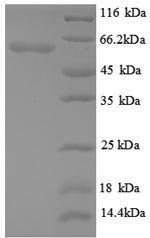

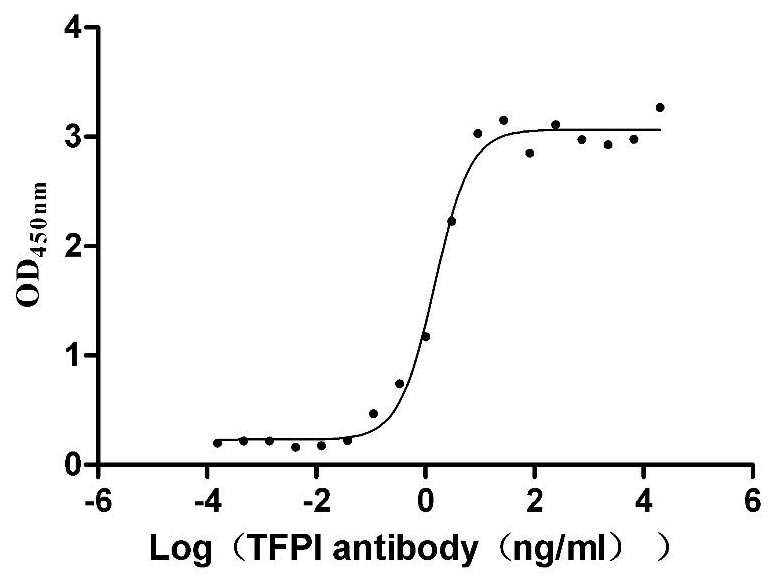

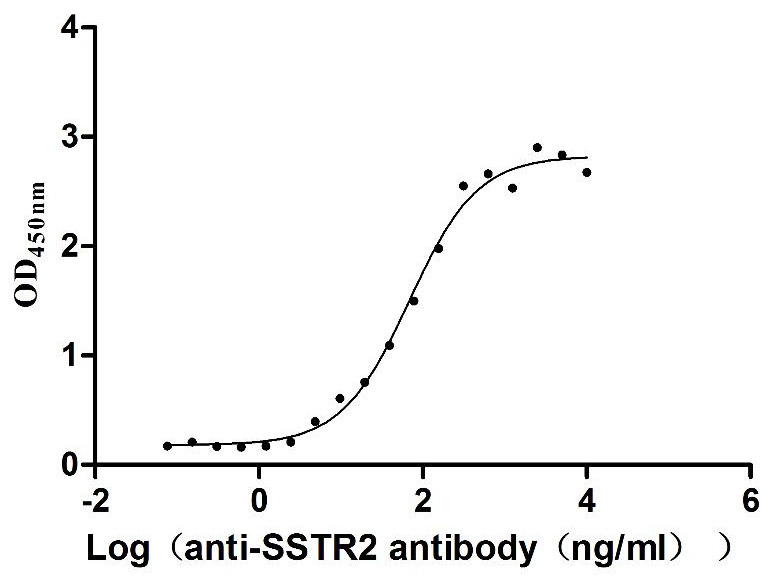
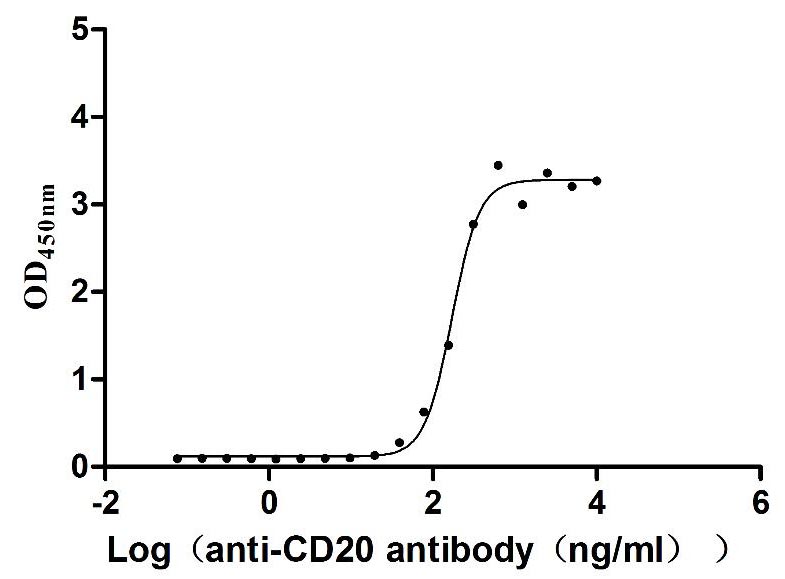
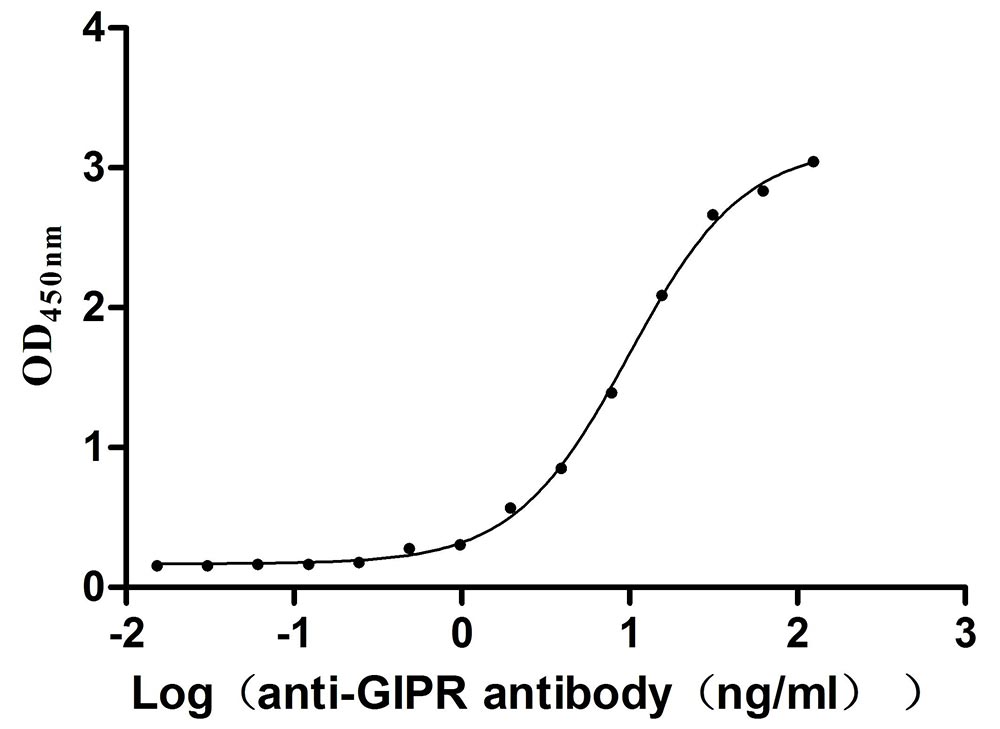
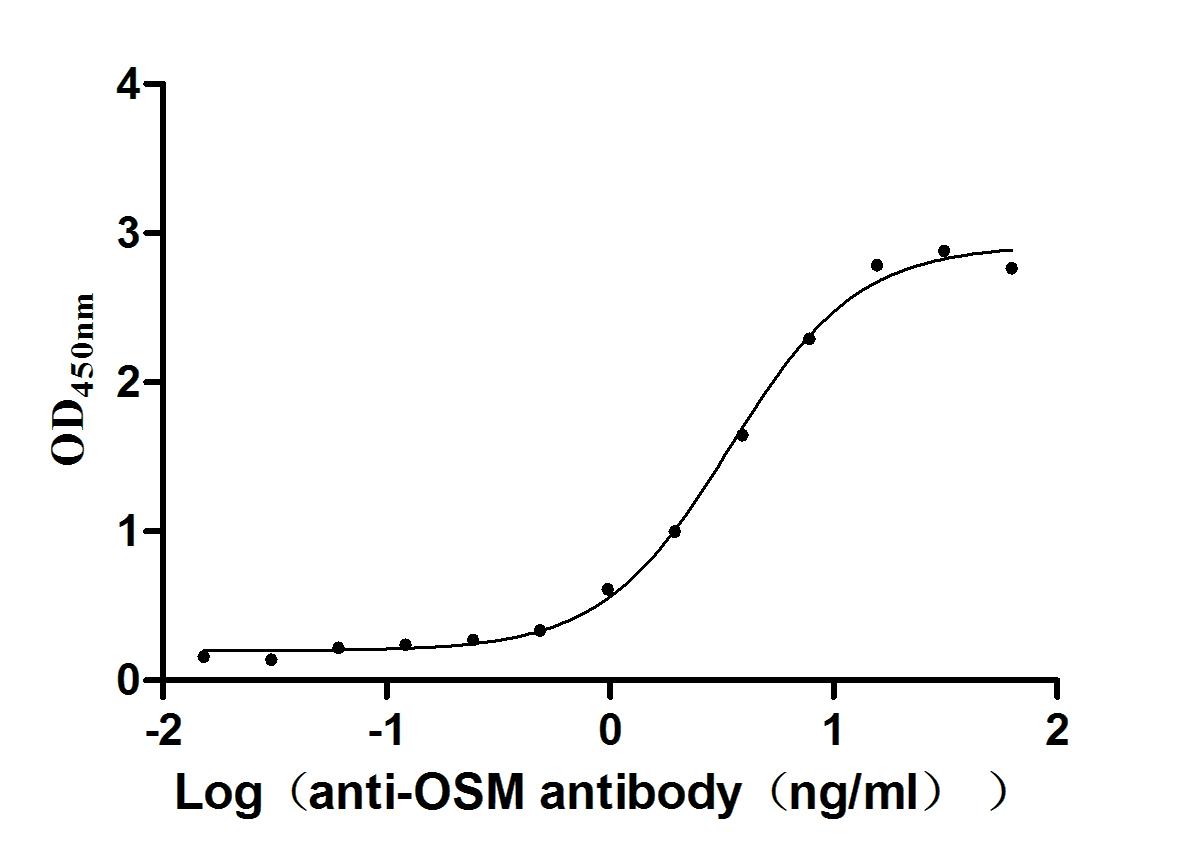
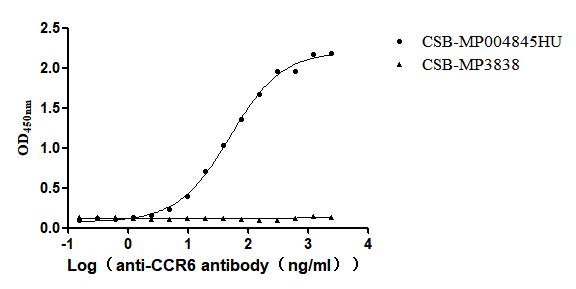
-AC1.jpg)










